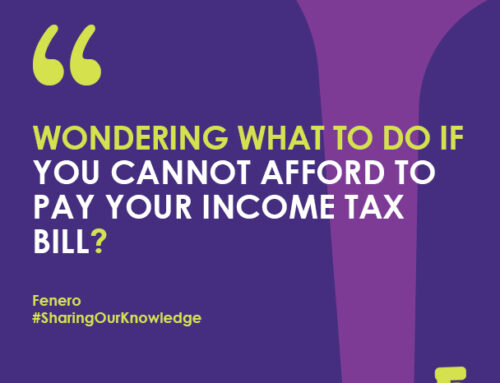7 Benefits & The Challenges of Contracting
More money, flexibility and vast opportunities are just some benefits associated with contracting, but it’s not without its downsides either. Before considering a career path in the contracting lane, you should weigh up the impact of these pros and cons on your individual circumstances.
Let’s examine the benefits and challenges a contractor may encounter.
BENEFITS |
|
1. |
Generous Pay & High DemandContractors are usually paid significantly more than their permanent equivalents. As we’ve seen in the last couple of years particularly, rates often increase even further when skills are in high demand due to a growing economy or when projects must be completed at short notice. Earnings are further boosted when using a contractor specialist tax advisor like Fenero. We’ll help you maximise tax benefits and other rewards that are often not clearly highlighted to contractors. These tax benefits help boost after-tax income and retention. |
|
|
|
2. |
Greater ChoiceVariety and flexibility are two notable differences between contractors and regular employees. For example, contractors have opportunities to work for multiple employers over much shorter spaces of time. Where “job-jumping” may be a questionable trait in a permanent employee, for a contractor it can increase your standing as an attractive candidate, proving to be someone who can bring a wealth of experience to a new project. Gaining experience in various companies opens up new and exciting projects to get involved in; this is often an important reason people choose contracting, especially those who get bored easily or find routine mundane! |
|
|
|
3. |
Opportunity to RebalanceFreedom comes in many forms as a contractor. The “Great Reassessment” of the Covid-19 pandemic was real for many, with some looking to get away from burnout cultures. Control over annual leave and time off in between contracts present the opportunity for downtime, travel or further education – something that isn’t always possible as a regular employee due to limited annual leave. Contracting also facilitates greater control over a preferred industry or working environment; be that surrounding yourself with like-minded individuals to expand learning opportunities or simply working remotely to suit personal circumstances. Working as a contractor can also help avoid the matter of office politics, which is favourable to those who prefer to simply go to work, to work! |
|
|
|
4. |
New SkillsWorking in different companies allows contractors to gain exposure to a multitude of operating systems, technologies and different ways of work. Although frequently adjusting to new technologies or ways of work may be challenging in the short term; it can prove highly beneficial and lucrative in the long term. Those who can comfortably adapt to new methods are more appealing to prospective employers when the time comes to find a new contract or permanent role. |
|
|
|
CHALLENGES |
|
5. |
Job InsecurityContracting is a form of self-employment and is a riskier career move than full-time employment. As a contractor, you must be prepared to be “on the job hunt” for your next contract. Developing your network and using good contract recruiters will help with the continuity of securing contract roles. Sure, the higher risk is reflected in the higher earnings received compared to permanent employees; however, contracting may not be suitable for highly risk-averse people and is not for everyone. |
|
|
|
6. |
High ExpectationsA common reason companies hire contractors is to complete an important project or task in a set period of time. Contractors are often expected to be fully capable and equipped to perform the role without the need for additional training. For a person to build a successful career in contracting, they should have built up a certain level of experience and skill set in their designated field. |
|
|
|
7. |
Reduced Employment BenefitsAlthough contractors usually get paid more than regular employees, they don’t receive payment fro holidays and sick pay. It is important to ensure your contract rate factors in the number of holidays you plan on taking each year along with any additional benefits typically received by permanent employees. If you are considering taking on a contract role, Fenero can assist in calculating the potential contract income and how it compares to your current overall package.
|
Summary
Weighing up both the benefits and challenges of contracting, your own individual preferences prevail in the overall decision and the answer ultimately comes down to your personality and circumstances.
If you think contracting is a good path for you but you are deterred by administration tasks and business responsibilities, Fenero can help take these jobs off your hands so you can focus on the job you love doing most. If you need more advice on working as a contractor, get in touch with us at hello@fenero.ie







